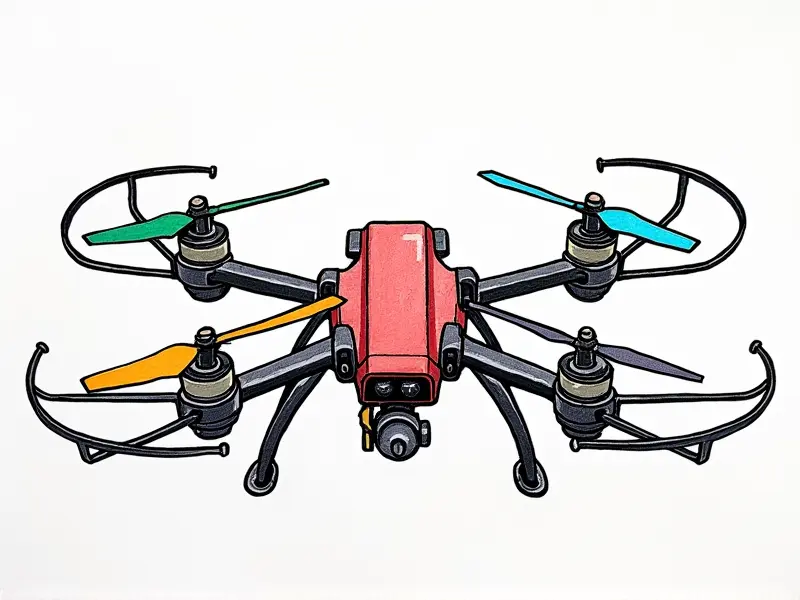Can RC helicopters fly in wind?

Can RC Helicopters Handle Wind?
Remote control (RC) helicopters are popular among hobbyists and enthusiasts for their maneuverability and precision. However, one of the most frequently asked questions is whether these miniature aircraft can handle windy conditions effectively. The answer lies in understanding the design features and operational capabilities of RC helis.
Flying RC Helis in Windy Conditions
Operating an RC helicopter in wind requires a certain level of skill and experience. Wind introduces additional variables that affect stability, control, and performance. Pilots must adjust their flying techniques to maintain control over the aircraft under varying wind conditions.
Tips for Flying RC Helis in Wind
- Start with Light Winds: Begin practicing in light winds before advancing to stronger gusts. This allows you to understand how your heli behaves and respond appropriately.
- Adjust Throttle Settings: Increase the throttle slightly to compensate for wind resistance, ensuring that the helicopter maintains lift and altitude.
- Pitch Control: Use pitch control effectively to counteract the effects of crosswinds. Adjusting the collective pitch can help maintain stability during flight.
RC Helicopter Performance in Wind
The performance of an RC helicopter in windy conditions depends on several factors, including rotor size, power-to-weight ratio, and overall design. Smaller helis may struggle more with wind resistance compared to larger models equipped with stronger motors.
Wind Challenges for RC Helicopters
- Stability Issues: Strong winds can cause instability, making it difficult to maintain a steady flight path. Pilots must be prepared to make frequent adjustments to keep the heli stable.
- Control Difficulties: Wind affects control surfaces and can make it challenging to execute precise maneuvers or maintain orientation.
- Battery Drain: Increased resistance from wind causes higher power consumption, leading to faster battery depletion. Pilots should keep this in mind when planning flight durations.
Mastery of Wind with RC Helicopters
To master flying RC helis in windy conditions, pilots need to develop a strong understanding of their aircraft's capabilities and limitations. Regular practice under various wind conditions helps build confidence and proficiency.
How Wind Affects RC Helicopter Flight
The effects of wind on an RC helicopter are significant and multifaceted:
- Dynamics: Wind alters the aerodynamic forces acting on the heli, affecting lift generation and stability.
- Navigation: Crosswinds can push the heli off course, requiring constant correction to maintain desired flight paths.
RC Helicopter Stability in Strong Winds
Maintaining stability in strong winds requires advanced piloting skills and a well-balanced RC helicopter. Proper calibration of control surfaces and fine-tuning of the heli's settings are crucial for optimal performance under challenging conditions.
Flying RC Helis: Dealing with Wind
Dealing with wind involves more than just adjusting controls; it requires strategic planning:
- Pre-flight Checks: Ensure all components are properly tuned and functioning before flying in windy conditions.
- Select Optimal Times: Choose times when winds are less gusty to minimize challenges during flight.
Is Wind a Problem for RC Helicopters?
While wind presents significant challenges, it is not an insurmountable obstacle. With the right approach and equipment, flying RC helis in windy conditions can be both enjoyable and rewarding.
Overcoming Wind Challenges with RC Helis
- Enhanced Design: Some RC helicopters are specifically designed to handle wind better than others. Features such as larger rotors, stronger motors, and improved aerodynamics contribute to better performance in windy conditions.
- Tail Rotor Design: A well-designed tail rotor can help maintain directional stability even when facing strong crosswinds.
Conclusion
Flying RC helicopters in wind is a test of skill, patience, and understanding. While it presents challenges, the ability to master these conditions enhances your piloting abilities and adds an exciting dimension to flying RC helis. With proper preparation and practice, you can enjoy smooth flights even when winds are strong.

